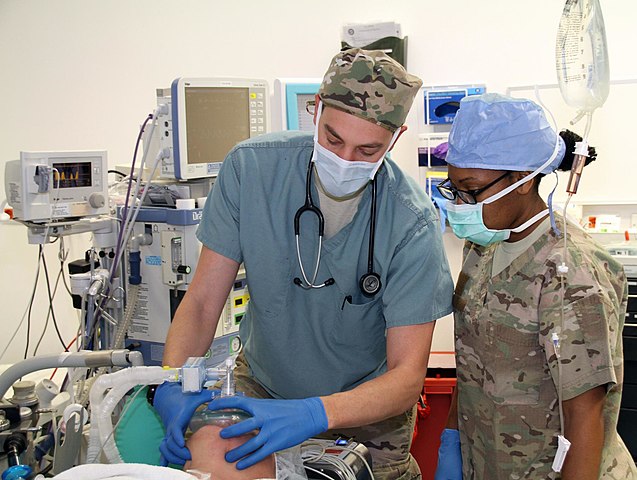Anesthesiologists play a critical role in surgical procedures by ensuring the safety, comfort, and well-being of patients before, during, and after surgery. Their responsibilities encompass a wide range of tasks and considerations, all of which are essential for the successful outcome of surgical interventions. Here are the key aspects of their role:
Preoperative Assessment:
Anesthesiologists begin their work by conducting thorough preoperative assessments of patients. This includes reviewing medical history, current medications, allergies, and any other relevant health information. They use this information to develop an anesthesia plan tailored to the individual patient.
Anesthesia Selection:
Anesthesiologists are responsible for selecting the appropriate type and dosage of anesthesia for each patient and surgical procedure. This can include general anesthesia (rendering the patient unconscious), regional anesthesia (numbing specific parts of the body), or local anesthesia (numbing a small area).
Administering Anesthesia:
Anesthesiologists are skilled in the administration of anesthesia drugs, which requires precise control over the patient’s level of consciousness and pain. They monitor vital signs throughout the surgery to ensure the patient’s stability and adjust the anesthesia as needed.
Monitoring Patient Vital Signs:
Anesthesiologists continuously monitor the patient’s vital signs during surgery. This includes tracking heart rate, blood pressure, oxygen saturation, and other parameters to detect any abnormalities or complications early.
Airway Management:
Maintaining a clear and secure airway is crucial during surgery, especially when a patient is under general anesthesia. Anesthesiologists are experts in airway management and are prepared to address any issues that may arise.
Pain Management:
Anesthesiologists manage pain not only during surgery but also in the immediate postoperative period. They often create a plan for postoperative pain relief, which may involve medication, regional anesthesia techniques, or other pain management strategies.
Intraoperative Decision-Making:
Anesthesiologists are trained to respond rapidly to any changes in the patient’s condition or unexpected events during surgery. Their ability to make quick decisions and manage emergencies is critical to patient safety.
Collaboration with Surgical Team:
Anesthesiologists work closely with surgeons, nurses, and other healthcare professionals in the operating room. Effective communication and collaboration are essential for ensuring a smooth surgical process.
Postoperative Care:
Anesthesiologists continue to care for patients in the recovery room after surgery. They monitor patients as they wake from anesthesia, manage any immediate postoperative issues, and ensure a smooth transition to the postoperative care team.
Pain Management in Recovery:
Anesthesiologists often play a role in managing pain during the early stages of recovery. They may provide pain relief and adjust medications as needed to ensure the patient’s comfort.
Patient Advocacy:
Anesthesiologists serve as advocates for the patient’s well-being throughout the surgical experience. They ensure that the patient’s medical history, allergies, and other critical information are considered in all aspects of care.
Quality Improvement:
Anesthesiologists are involved in quality improvement initiatives to enhance patient safety and outcomes. They participate in reviews of adverse events and contribute to protocols and practices that improve anesthesia care.
In summary, anesthesiologists are indispensable members of the surgical team who are responsible for the safe and effective administration of anesthesia and the overall well-being of the patient during surgery. Their expertise, vigilance, and ability to respond to changing circumstances are vital for ensuring that surgical procedures are conducted with the highest level of safety and care.









